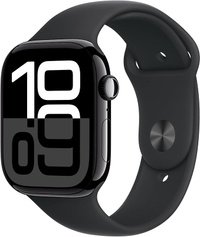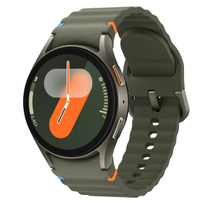I walked 6,000 steps with the Apple Watch 10 vs Samsung Galaxy Watch 7 — this one was more accurate
Apple vs Samsung. Which smartwatch is more accurate?
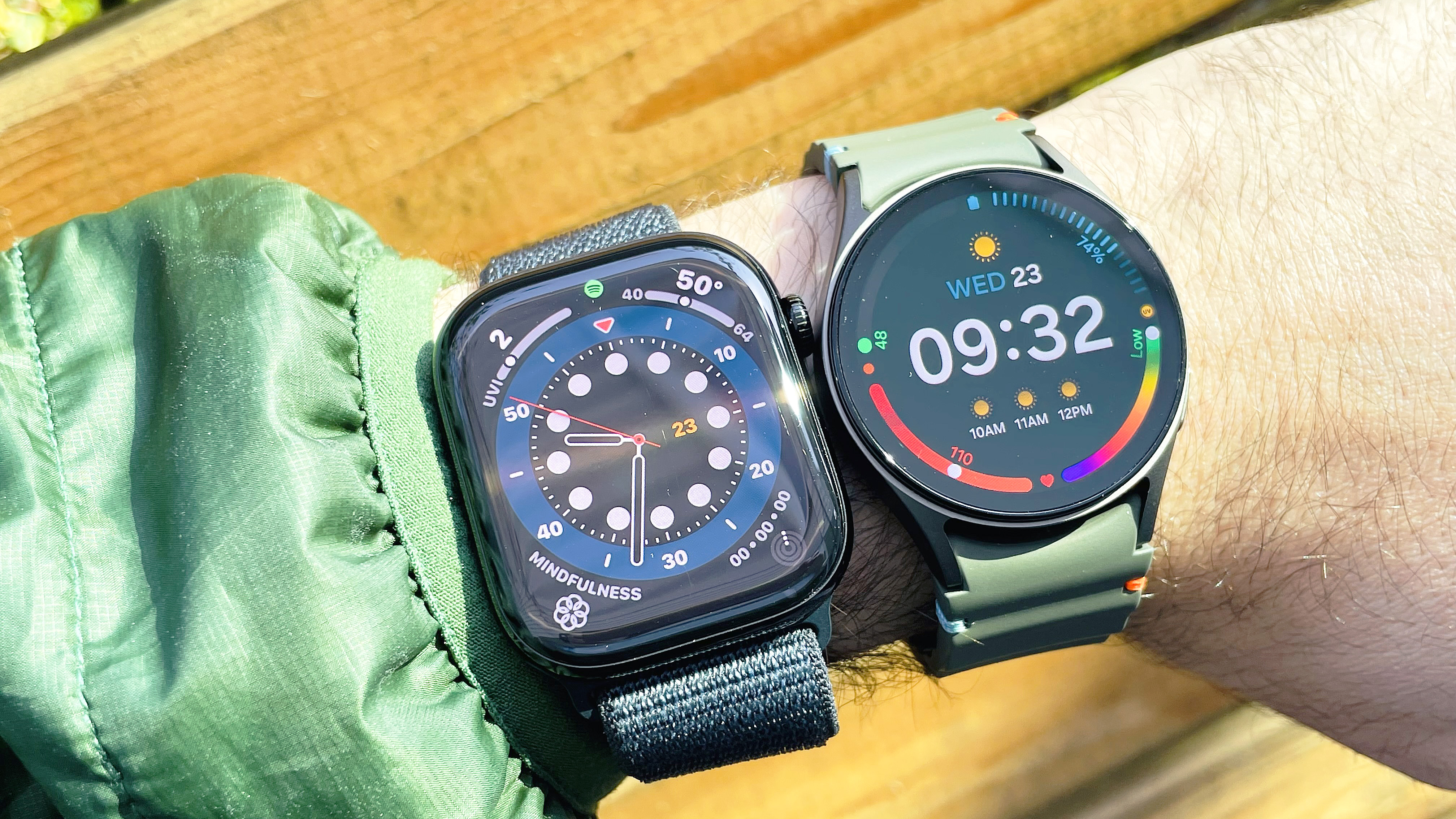
The Apple Watch Series 10 and Samsung Galaxy Watch 7 are easily two of the best full-featured smartwatches available today. As Tom's Guide's resident wearables expert, they are also two of the models I reccomend most.
In addition to onboard smarts — and access massive buffets of third-party apps — both flagships boast impressive health and workout tracking tech paired with tools to help you maintain an active lifestyle, stay on top of your fitness goals, monitor and improve sleep quality and more effectively recover post-workout.
The question is, which device is the more accurate fitness tracker? To find out, I wore one on either wrist and tracked a manually-counted 6,000-step walk.
You can find the results from the Apple Watch 10 vs Samsung Galaxy Watch 7 in the chart below.
Apple Watch 10 vs Samsung Galaxy Watch 7: Specs and features
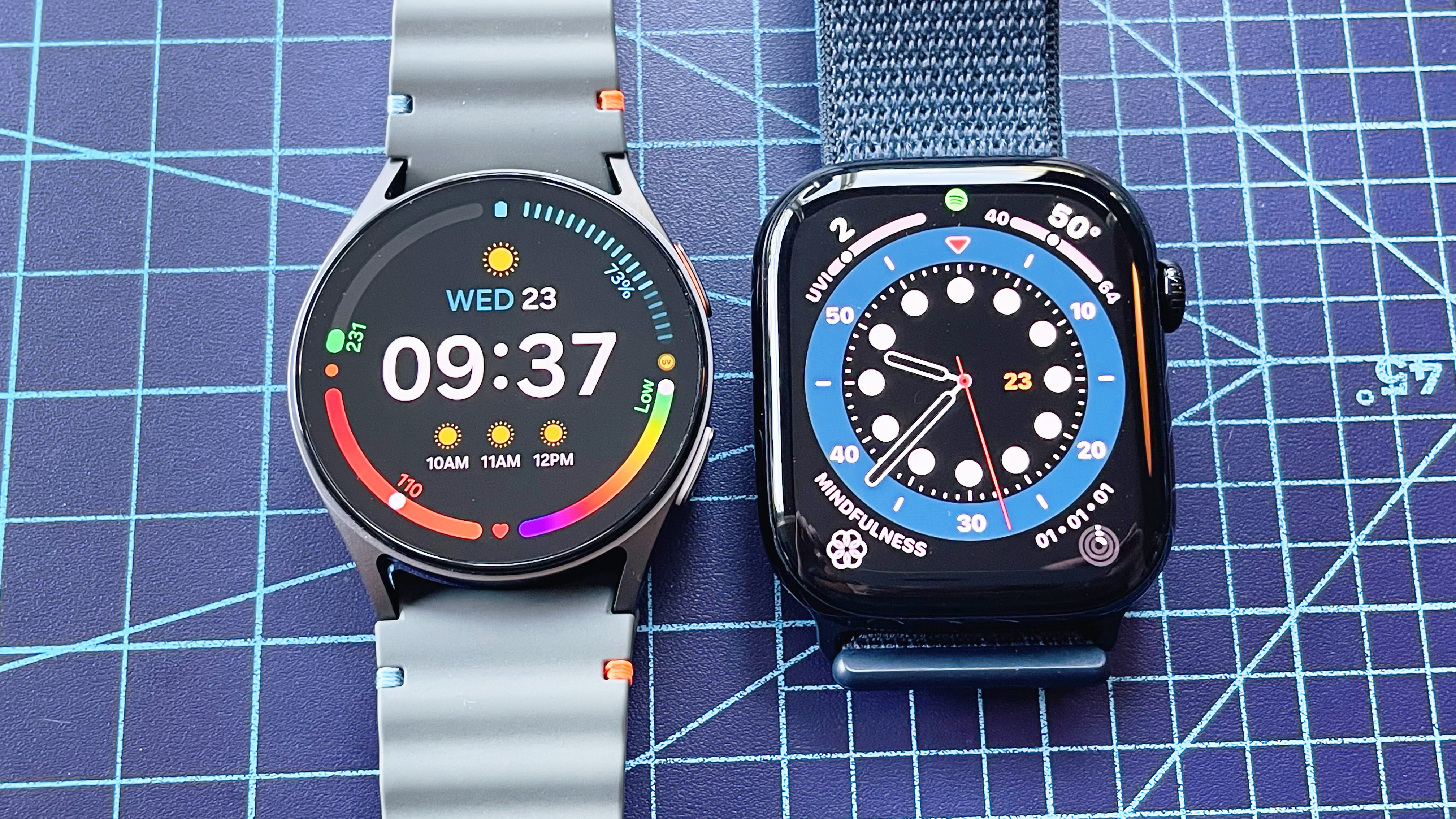
But first, how do these two popular wearables compare? Despite a $100 difference in the starting price — the Galaxy Watch is the more affordable option — they offer very similar features, specs and even designs once you set aside their different case shapes.
Of course, the Apple Watch Series 10 — the best Apple Watch you can buy today — runs watchOS and only works with the iPhone, while the Samsung Galaxy Watch 7 — one of the best smartwatches for Android — runs on Wear OS and works best with one of the best Samsung phones.
You can use the Galaxy Watch 7 with other newer Androids, but you'll miss out on some of its best AI-backed wellness features.
Sign up to get the BEST of Tom's Guide direct to your inbox.
Get instant access to breaking news, the hottest reviews, great deals and helpful tips.
Those key differences aside, you're getting optional cellular connectivity, a bright and responsive touchscreen, a pair of physical buttons, 24 hours of battery life and state-of-the-art smart, safety and holistic features in whichever model you choose.
The Apple Watch Series 10 features a bright and responsive touch screen, a comfortable and lightweight case and more smart functions than you'll know what to do with. Some of my favorites include on-wrist translations and global tide tracking. You also get useful safety tools and lots of holistic-tracking tech.
The Samsung Galaxy Watch 7 provides in-depth, AI-backed, holistic insights into everything from sleep quality to fitness training and recovery. A handsome and easy-wearing watch, the touchscreen is bright and responsive, smart features and third-party apps are plentiful, and battery life is good for a full day.
Apple Watch 10 vs Samsung Galaxy Watch 7: Walk test
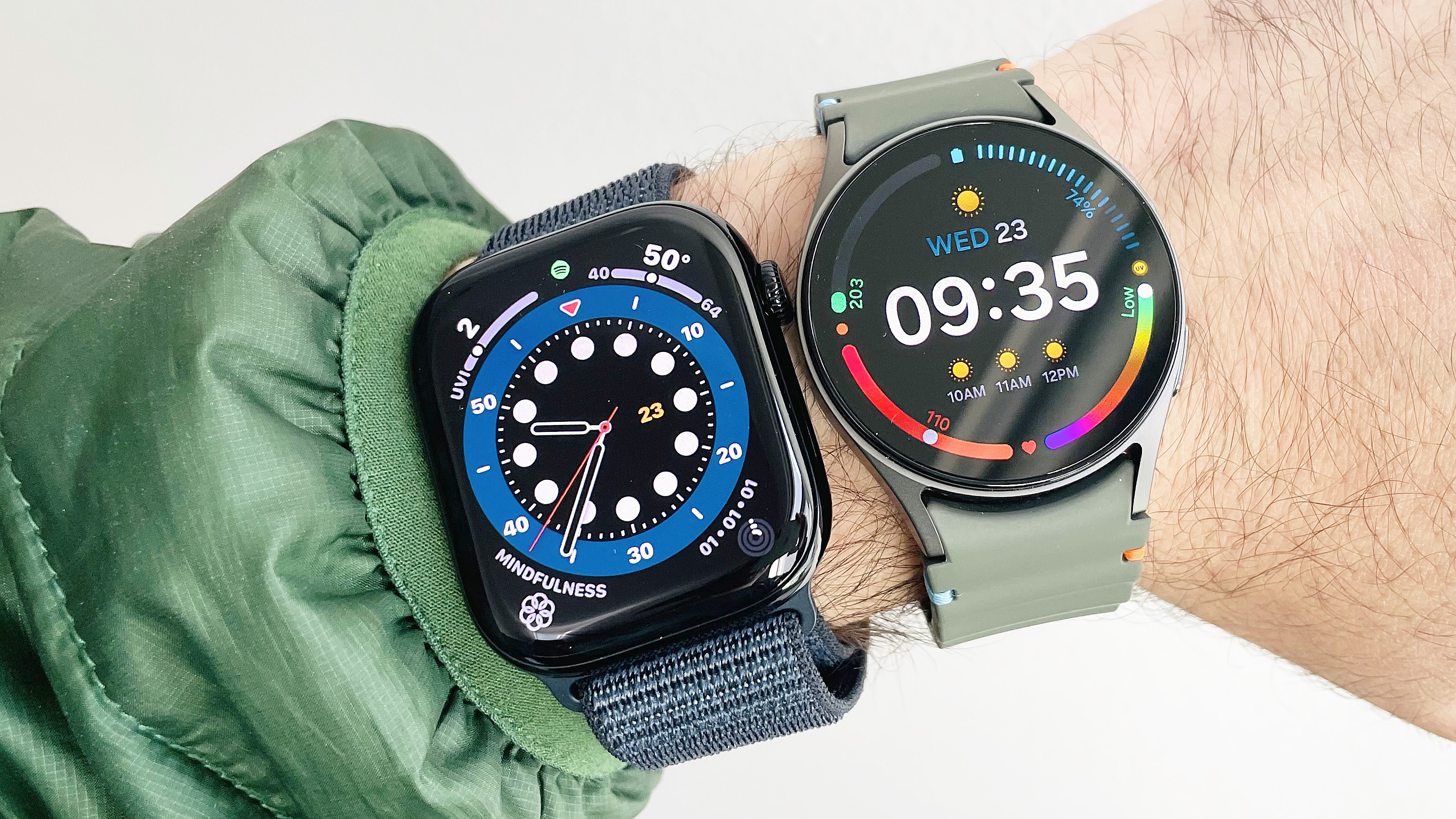
If you've tuned in for any of my previous walk tests, feel free to skip on down to the results, because nothing has changed with how I test. For the newbies, welcome! Here's how we conduct these real-world accuracy comparisons.
To start, one watch goes on either wrist; in this case, the Apple Watch was on my left wrist, and the Samsung Galaxy Watch was on my right. With tracking rolling on both, along with Strava on my iPhone 12 mini, I embark on my walk, manually counting every step I take until I hit 100 steps. At that point, I give my trusty old-school tally-counter a click and start over again at one. Rinse and repeat 60 times.
Once I close in on my intended step count, i.e., get close to a nice rounded-number-total, I end the test by concluding tracking on all three devices and recording the results. This data then gets filed into the chart you see below and analyzed before a winner is declared.
With that said, let's head to the results chart!
Apple Watch 10 vs Samsung Galaxy Watch 7: Walk test results
| Header Cell - Column 0 | Apple Watch 10 | Samsung Galaxy Watch 7 | Control |
|---|---|---|---|
Step count | 5,955 steps | 5,943 steps | 6,000 steps (manual count) |
Distance | 3.23 miles | 3.28 miles | 3.30 miles (Strava) |
Elevation gain | 217 feet | 221 feet | 208 feet (Strava) |
Average pace | 17 mins 40 secs per mile | 16 mins 28 secs per mile | 16 mins 02 secs per mile (Strava) |
Average heart rate | 118 bpm | 122 bpm | n/a |
Max heart rate | 142 bpm | 144 bpm | n/a |
Total calories burned | 419 calories | 365 calories | n/a |
Battery depleted | 5% | 5% | n/a |
Both smartwatches reported step count totals less than 100 steps off from my actual total. That's well within a reasonable margin for error — 99% accurate is good enough in my book. These are overwhelmingly reassuring results, not just for step count data but across the board.
The Apple Watch 10 was off by just 45 steps compared to 57 steps for the Galaxy Watch 7. Strava, however, was even closer with a step count total of 5,964 steps. All three devices, meanwhile, reported similar distance data within a tenth of a mile of one another.
The Apple Watch 10 and the Samsung Galaxy Watch 7 also calculated similar elevation metrics, with just 4 feet separating the tallies. However, Strava noted a slightly lesser total climb for the walk.
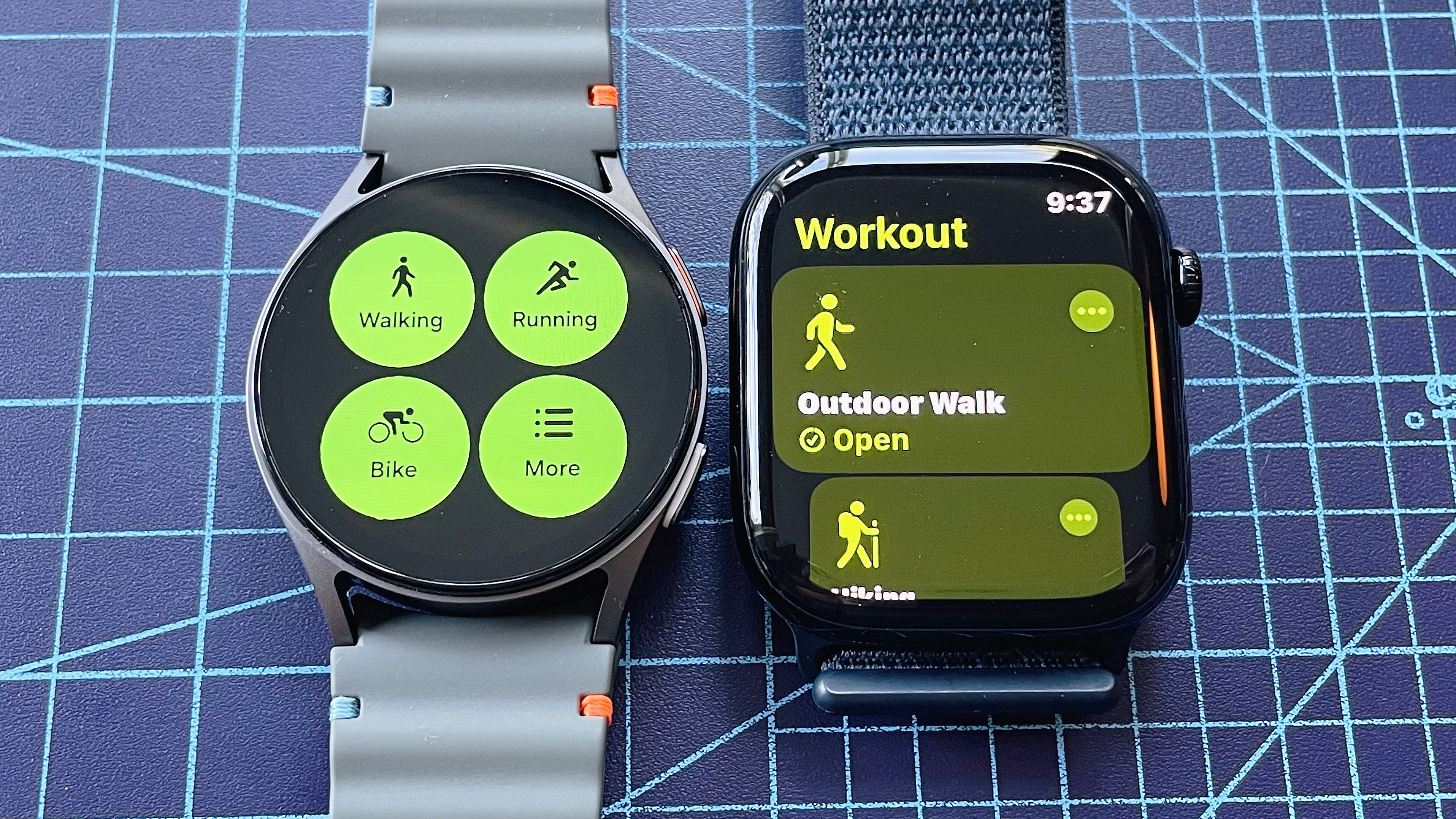
Pace data is less consistent. While Samsung and Strava posted similar numbers, Apple's pace is way slower. Why? Samsung and Strava calculate your average pace based on your moving time, while Apple calculates it based on the total time the workout takes. This means that pauses in motion, like waiting at a crosswalk for the light to change, are held against you in Appleland.
Strava also provides an average "elapsed" pace metric, which, like Apple, is calculated based on your total workout time. For this walk, Strava measured my average elapsed pace at 16 minutes, 50 seconds per mile.
Heart rate data between the Apple and Samsung also checks out, with the slight discrepancies likely attributable to the devices being worn on different wrists. Apple, meanwhile, calculated 54 more calories burned during my walk. However, of all the metrics above, I place the least emphasis on the accuracy of this one.
Finally, battery drain for the 53-minute workout was the same for both devices, 5%.
Apple Watch 10 vs Samsung Galaxy Watch 7: Winner
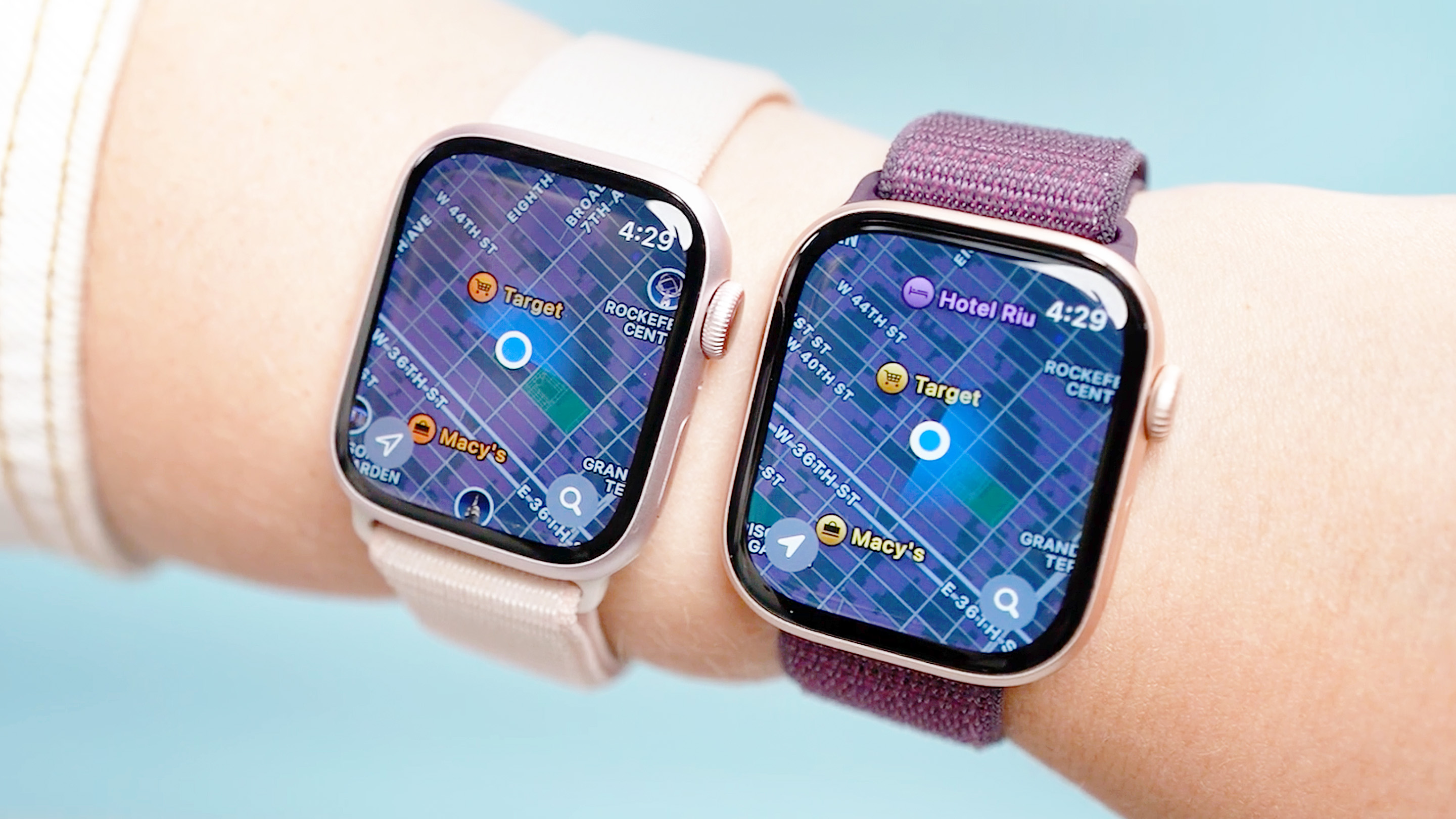
In this comparison of fitness-tracking accuracy between the Apple Watch 10 and Samsung Galaxy Watch 7, Apple comes out victorious, besting the competition by just 12 steps.
So, does this mean that Apple makes better fitness-tracking wearables than Samsung? Certainly not.
Ultimately, both of these flagship smartwatches proved accurate in this test, posting similar (and sensible) data. Moreover, based on this comparison and numerous others, I'd confidently recommend either for your fitness tracking needs/journey.
Which smartwatch models or fitness trackers would you like to see me enter the ring with in a future bout of fitness-tracking supremacy? Let me know in the comments below.
More from Tom's Guide

Dan Bracaglia is the Tom’s Guide editorial lead for all things smartwatches, fitness trackers and outdoor gear. With 15 years of experience as a consumer technology journalist testing everything from Oura Rings to instant cameras, Dan is deeply passionate about helping readers save money and make informed purchasing decisions. In the past year alone, Dan has assessed major product releases from the likes of Apple, Garmin, Google, Samsung, Polar and many others.
An avid outdoor adventurer, Dan is based in the U.S. Pacific Northwest where he takes advantage of the beautiful surroundings every chance he gets. A lover of kayaking, hiking, swimming, biking, snowboarding and exploring, he also makes every effort to combine his day job with his passions. When not assessing the sleep tracking and heart rate accuracy of the latest tach gadgets, you can find him photographing Seattle’s vibrant underground music community.
You must confirm your public display name before commenting
Please logout and then login again, you will then be prompted to enter your display name.
